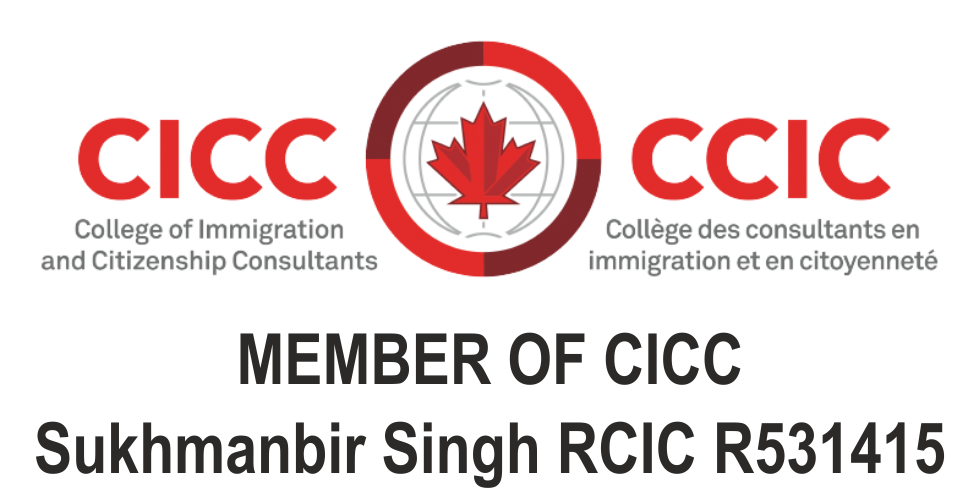Status Restoration
Restoration of temporary resident status is a process for individuals who have lost their status in Canada, as described in section 47 of the Immigration and Refugee Protection Act (IRPA). Temporary residents who allow their authorization to work or study to expire may apply for restoration under section 182 of the Immigration and Refugee Protection Regulations (IRPR). It’s important to note that under the IRPA, status and authorization are separate concepts. As a result, applicants can only restore their status to that of a temporary resident and to the specific authorization they held immediately before their restoration application. For instance, a student who has lost their status cannot apply to restore their temporary resident status with work authorization; they can only regain the status and authorization associated with their student status.

Eligibility requirements for Status Restoration
The applicant must:
- Ensure that the application is submitted within 90 days of losing their status.
- Meet the initial requirements for their stay.
- Remain in Canada until a decision is made.
- Have not failed to comply with any conditions imposed automatically by regulation [R183] or by an officer [R185], except for specific exceptions outlined below.
- Have lost their status solely due to non-compliance with the following conditions imposed by an officer:
- The period authorized for their stay (paragraph R185(a)).
- The type of work they are permitted to engage in or prohibited from engaging in, including details regarding the employer and location (subparagraphs R185(b)(i) to (iii)).
- The studies they are permitted to engage in or prohibited from engaging in, including the type of studies, educational institution, location, and times (paragraph R185(c)).
- Not be subject to a declaration under subsection A22.1(1).
- Continue to meet the requirements of a temporary resident and the requirements of the work or study permit, as applicable.
Ninety-Day Period
Foreign nationals are given 90 days from the date they lose their temporary resident status to apply for restoration. According to section A47, status is considered lost when the authorized stay expires or when an officer determines that the foreign national has failed to comply with any other requirements of the IRPA.Period of Authorized Stay
A period of authorized stay includes periods of status maintained by law (maintained status) under subsection R183(5). If an application is rejected under section R12 as incomplete, no extension of the period of authorized stay is provided. Under paragraph R222(1)(a), a study permit becomes invalid 90 days after the student completes their program of study. If an application for an extension of temporary resident status under section R181 is refused, the foreign national has 90 days from the refusal notice date to apply for restoration, if otherwise eligible.Continuation of Work or Study
Individuals applying for restoration have lost their status and authorization to work or study. Therefore, they cannot continue to work or attend school until their status and authorization have been restored, and a new work or study permit has been issued.Leaving Canada
Restoration of status cannot be granted at the port of entry. If a foreign national leaves Canada, they will be deemed to be seeking new entry upon return, which may affect their admissibility due to previous non-compliance with imposed conditions, as per section A41 and subsection A29(2). Should an officer determine during the processing of a restoration application that the foreign national has left Canada, the application will be refused due to ineligibility, with processing fees not refunded.
A foreign national may only apply to restore their status and authorization to what they held immediately before losing their status. For example, a temporary resident with authorization to study who is out of status cannot apply to restore their status with authorization to work; they must restore their status with authorization to study.
Students
A temporary resident holding a study permit who has lost their status may apply in Canada for restoration of their temporary resident status and study permit. They may also apply for a work permit if they meet the requirements of the relevant work permit program. If the study permit is approved, the work permit application will then be processed.Workers
A temporary resident who held a work permit and lost their status may apply in Canada for restoration of their temporary resident status and work authorization within 90 days of losing their status. Alongside restoration and a new work permit application, they may also apply for a study permit if they meet the criteria for study permit issuance. The study permit will be assessed only after approval of the work permit and restoration applications.Visitors
A visitor who is out of status may apply to restore their status as a temporary resident. Temporary residents eligible to apply in Canada for a work or study permit [R199 or R215] may do so while restoring their temporary resident status. The fees for the study or work permit must be paid in addition to the restoration fee, unless an exemption applies.Temporary Resident Permit (TRP) Holders
A temporary resident permit (TRP) holder who has allowed their permit to expire is not eligible for restoration. They must submit a new application for a TRP. It is important that the individual satisfies the officer that they are a genuine temporary resident and meet all IRPA requirements to qualify for a new TRP.
Impact of Non-Compliance
Foreign nationals should be aware that previous non-compliance can have serious implications for future applications and may affect their admissibility to Canada.Document Preparation
All documentation must be accurately prepared and submitted with the restoration application to avoid delays or rejection.Legal Assistance
It may be beneficial for applicants to seek legal advice or assistance from immigration professionals to navigate the complexities of the restoration process.Application Fees
The corresponding restoration application fees must be paid alongside any other application fees, and applicants should ensure they have the financial resources to cover these costs.Processing Times
Applicants should be prepared for varying processing times and remain patient while their applications are being reviewed.
The applicant must not have any pending criminal charges or convictions that could affect their admissibility to Canada. Any legal issues may impact their ability to restore their status.
The applicant must demonstrate a genuine intention to comply with Canadian laws and the conditions of their temporary resident status. This may include providing evidence of ties to Canada, such as family connections, employment, or community involvement.
Fees and Application Process for Restoration
All corresponding fees must be paid by foreign nationals applying for restoration. Only the restoration fee is required for those applying to restore their temporary resident status. However, if a work or study permit is also needed, the cost recovery fees for each permit must be paid in addition to the restoration fee, unless an exemption applies.
Process at the Case Processing Centre in Edmonton (CPC-E)
- Step 1: The restoration application is received by the Case Processing Centre in Edmonton (CPC-E), which ensures that all required documentation and fees (restoration fee plus any applicable permit fees) are included. Note: For students applying for a post-graduation work permit (PGWP), refer to the PGWP application process.
- Step 2: The eligibility of the applicant for restoration is assessed by the officer.
If eligibility is confirmed:
- The application is further assessed (medical results, bona fides, etc.).
Medical instructions are issued if a medical examination is required, including the following documents sent to the client:
- Medical instructions
- A medical examination form [IMM 1017]
- A list of panel physicians
- Upon meeting all requirements, including medical examination results, a visitor record (or appropriate permit) is issued to the applicant, detailing the conditions for the restoration of status. This document is mailed to the client.
If eligibility is not confirmed:
- The application is refused, and written notification is provided to the applicant, instructing them to leave Canada immediately.
- A determination may be made regarding a section 44 report due to a potential violation of the IRPA or IRPR.
- Case notes are written to detail the violation.
- The application is referred to a Domestic Network (DN) office near the applicant’s residence for further assessment and possible interview.
Process at Domestic Network (DN) Office (if applicable)
If the restoration application is referred to a local office by CPC-E, an interview may be arranged by the DN officer to gather additional information. Following the interview or upon reviewing the application, the officer will either approve or refuse the application.
- If approval is granted and restoration is achieved, a visitor record or appropriate permit outlining the new conditions is issued to the applicant.
- If restoration is refused, the decision is communicated to the applicant, along with a letter notifying them of the refusal and the reasons behind it.
Note: Applicants whose restoration is refused are advised that they must leave Canada immediately.





